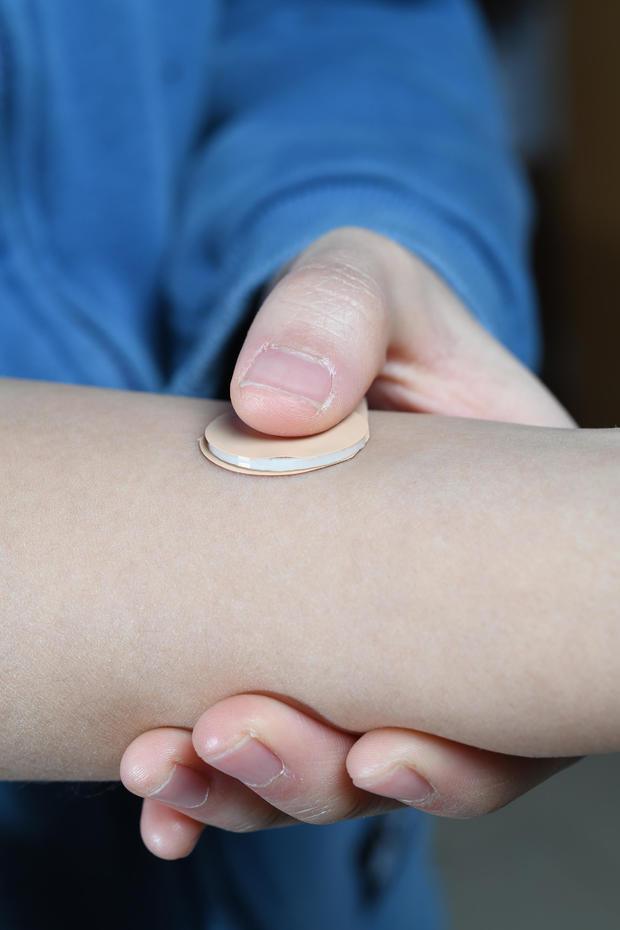Experimental patch could offer once-a-month contraceptive option
Most currently available contraceptive methods are far from perfect. Women have to remember to take birth control pills around the same time every day to be the most effective, while condoms must be used perfectly every single time you have sex for the highest chance of preventing pregnancy. Long-acting contraceptives like the intrauterine device (IUD) are more reliable but require a health care professional to implant a device or inject a drug.
Researchers from Georgia Tech are working on an experimental new method of birth control in the form of a patch placed on the skin for a few seconds each month, to provide weeks of protection against pregnancy.
In a study conducted in animals, the microneedle contraceptive patch provided a therapeutic level of contraceptive hormone for more than a month with a single application to the skin. The results of the study are published in the journal Nature Biomedical Engineering.
"There is a lot of interest in providing more options for long-acting contraceptives," Mark Prausnitz, a Regents' Professor in the School of Chemical and Biomolecular Engineering at the Georgia Institute of Technology and the paper's corresponding author, said in a statement. "Our goal is for women to be able to self-administer long-acting contraceptives with the microneedle patch that would be applied to the skin for five seconds just once a month."
After the patch is applied for a few seconds and then removed, the dissolvable microscopic needles break off and remain under the surface of the skin. The contraceptive drug levonorgestrel is then slowly released over time as the microscopic needles dissolve.
The microneedle technology, which was originally developed for the painless administration of vaccines, was at first intended for use in areas of the world with limited access to health care facilities. But the researchers say a contraceptive patch like this could potentially provide a new family planning option to women everywhere.
There are currently some contraceptive patches on the market but they must be worn continuously.
If the microneedle patch is ultimately approved for use for contraception, it could become the first self-administered, long-acting contraceptive that does not involve a conventional needle injection.
In lab rats, tests evaluated only the blood levels of the hormone and did not attempt to determine whether it could prevent pregnancy. "The goal was to show that we could enable the concentration of the levonorgestrel to stay above levels that are known to cause contraception in humans," Prausnitz said.
The researchers have designed experimental patches for use in humans, but they have not yet been tested.
"We do not yet know how the contraceptive microneedle patches would work in humans," Prausnitz said. "Because we are using a well-established contraceptive hormone, we are optimistic that the patch will be an effective contraceptive."
Prausnitz also expects that possible skin irritation from the patch "will be minimal, but these expectations need to be verified in clinical trials."
Earlier research has looked at dissolving microneedle patches designed to carry vaccines into the body. In collaboration with Emory University, a phase I clinical trial involving the flu vaccine was conducted in humans and found that microneedle patches could be used safely used to administer the vaccine.
Because the microneedles in the patches are so small and only enter the upper layers of the skin, the study participants said they were not painful.
Georgia Tech researchers are also looking into developing a birth control patch that could be applied once every six months.
"There is a lot of interest in minimizing the number of health care interventions that are needed," Prausnitz said. "Therefore, a contraceptive patch lasting more than one month is desirable, particularly in countries where women have limited access to health care. But because microneedles are, by definition small, there are limits to how much drug can be incorporated into a microneedle patch."
He notes that mass-production costs have not been determined but expects the contraceptive patches would be affordable enough for use in developing countries.





